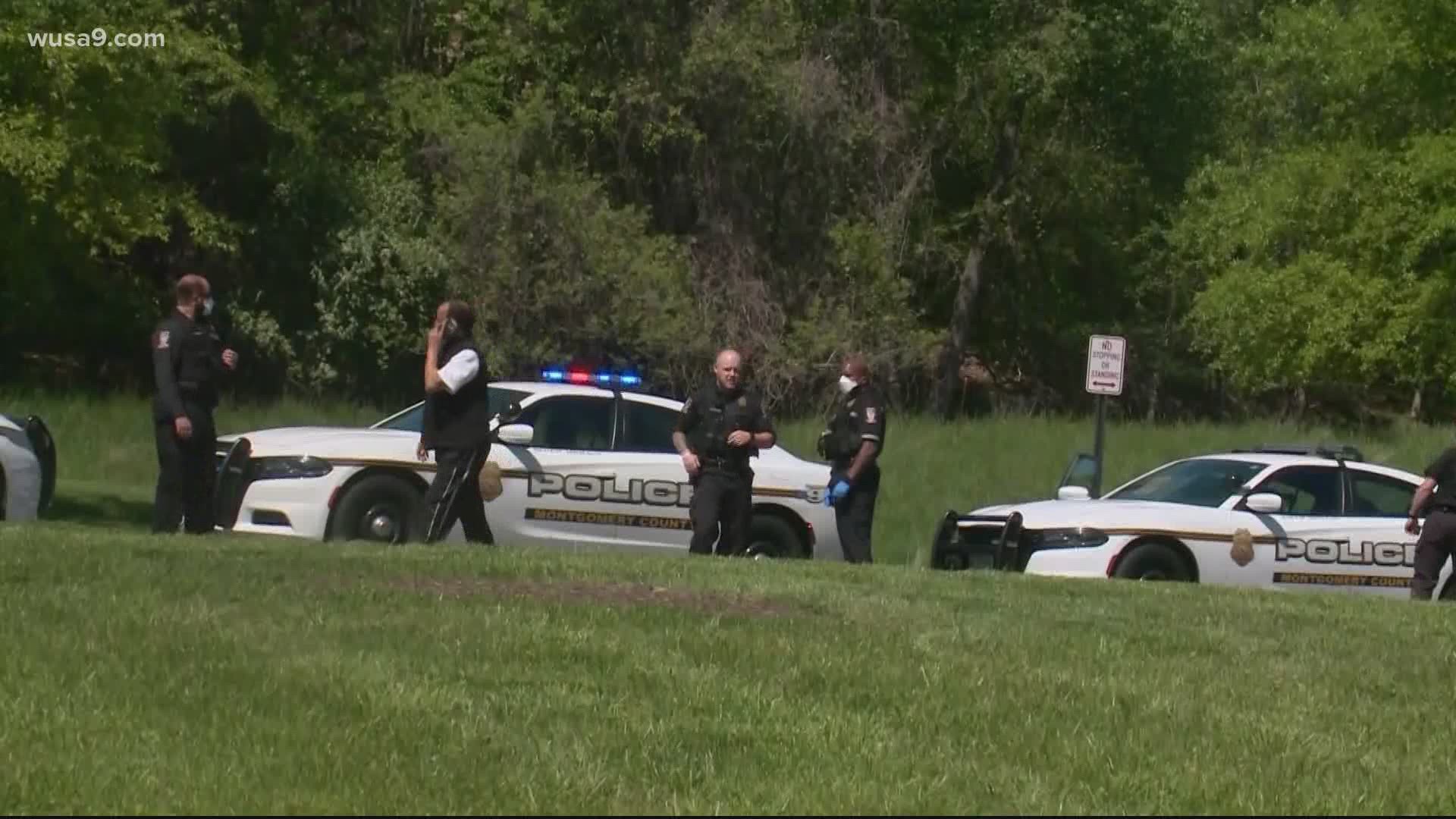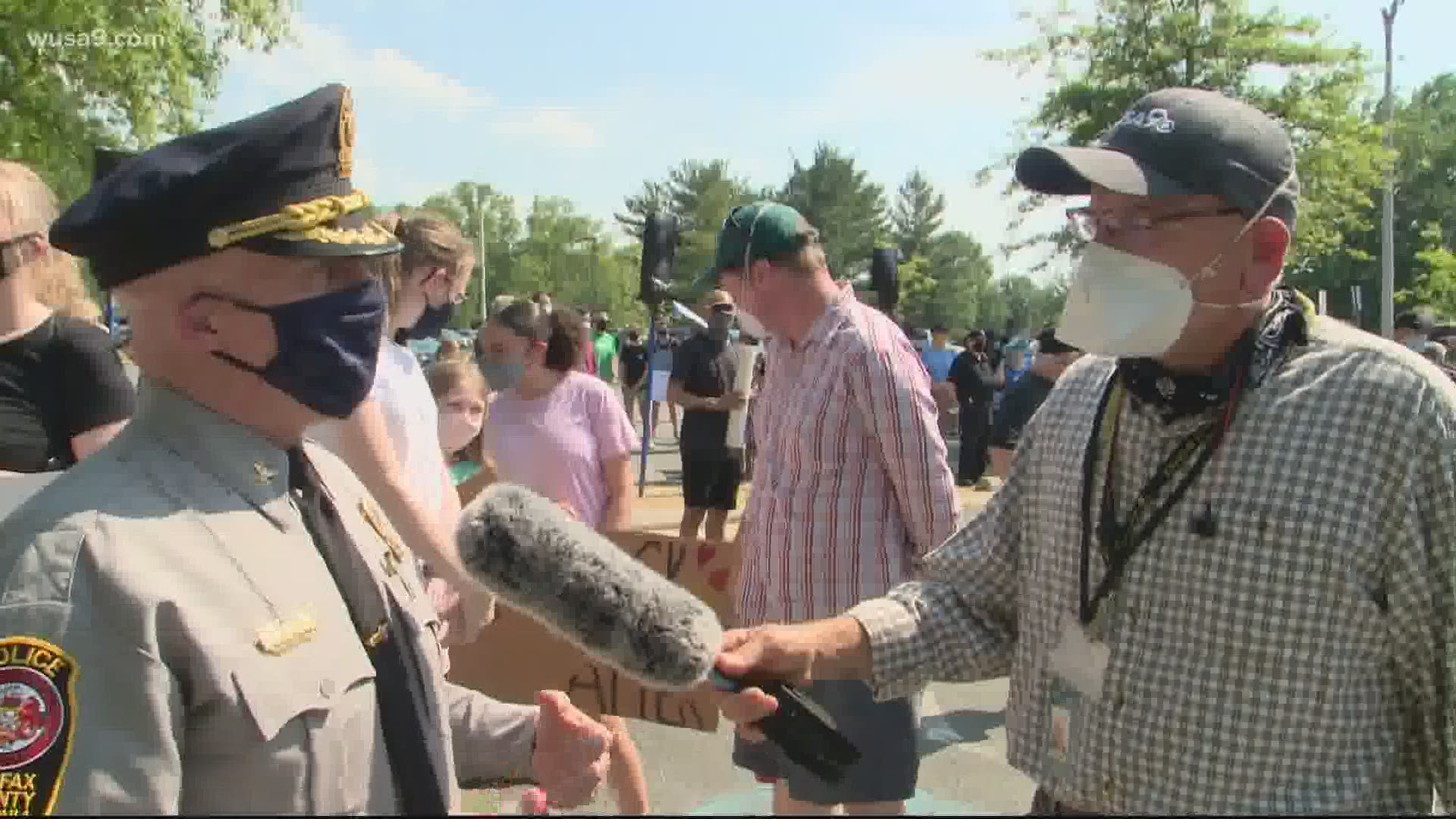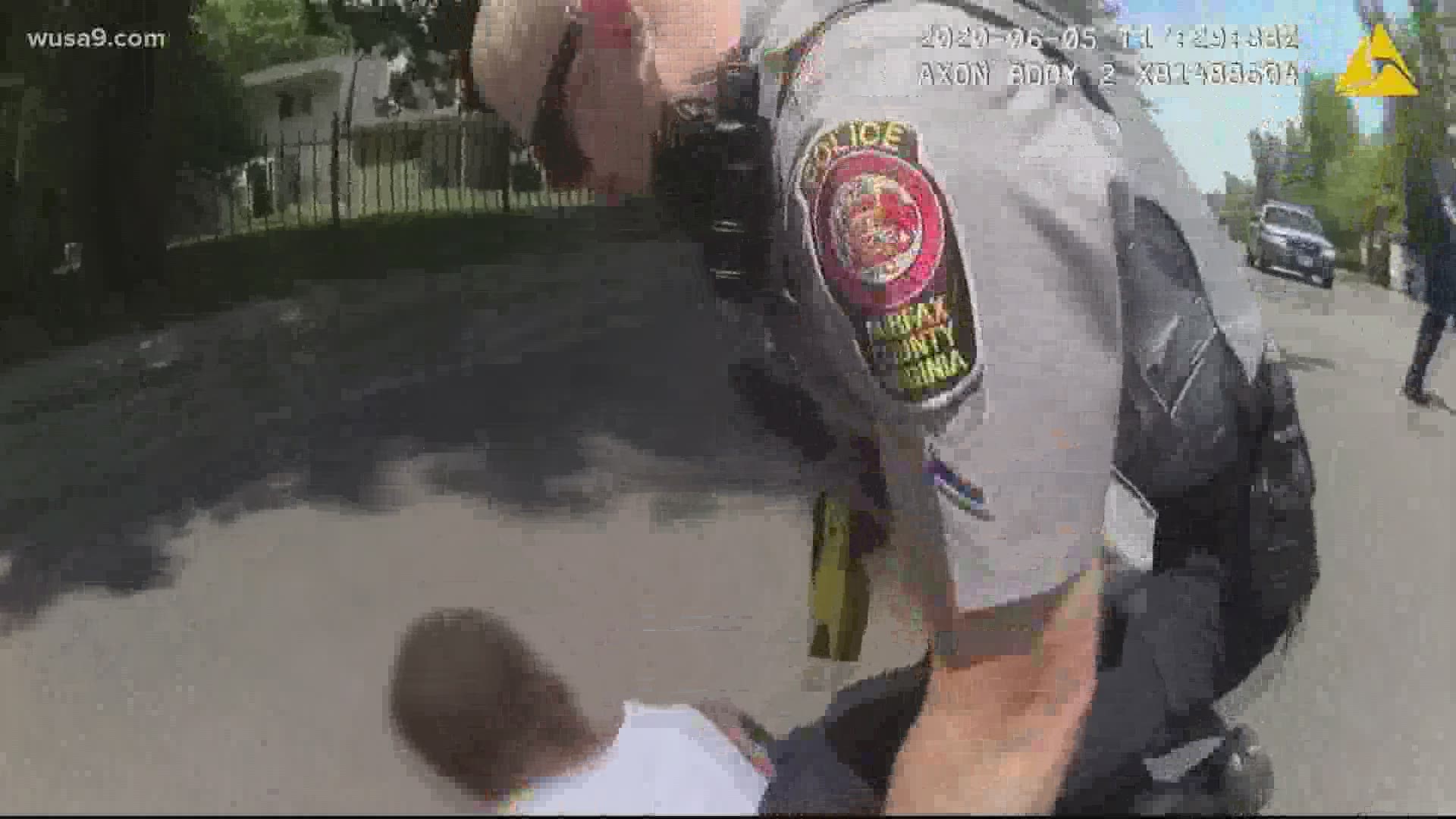FAIRFAX COUNTY, Va. — Some local police departments are putting an increased emphasis on “de-escalation” as law enforcement looks for ways officers can avoid violent confrontations with suspects or people in the community in the wake of the death of George Floyd and the protests it sparked.
An incident involving the use of a Taser by a Fairfax County police officer on June 6, 11 days after the killing of George Floyd, brought the issue of de-escalation to the forefront. Body-worn camera video shows a Fairfax County police officer and an EMT trying to coax a man into the ambulance after he called 911 for trouble breathing.
“He’s walking around the street rambling,” an officer can be heard speaking into the radio.
Despite that, the officer and the EMT show patience as they interact with the man for more than two and a half minutes.
“Are you doing OK? Do you mind stepping out of the road?” the officer asks the man.
“I’m here to help you, so just tell me what you need,” the EMT adds.
Then, the body-worn camera video shows another Fairfax County Police Officer, Tyler Timberlake, walking into the picture.
“Get on the ground Anthony!” Officer Timberlake instructs the man.
“Is he wanted?” the first officer asks.
Without warning, Officer Timberlake uses his Taser on the man, who falls to the ground screaming.
The video continues as the man struggles under the weight of Officer Timberlakes' knee, who uses the Taser on him a second time.
WUSA9 asked Redditt Hudson, a former St. Louis Police Officer and founder of the National Coalition of Law Enforcement Officers for Justice Reform and Accountability, to review the body-worn camera video.
He told us based on the footage available to the public, Officer Timberlake overreacted when he used the Taser only seconds of being on the scene.
"That is a situation that kind of affirms this new push for involving people who may be better qualified to handle someone like that: A social worker or a medical professional, somebody who is psychologically trained to respond to that situation,” Hudson said.
Hudson says that’s just one of the reforms being considered to improve de-escalation techniques by police.
What Is De-Escalation?
The Department of Justice defines it as “the strategic slowing down of an incident in a manner that allows officers more time, distance, space and tactical flexibility during dynamic situations on the street.”
The ultimate goal is to avoid the need for the use of physical force by law enforcement.
“With de-escalation, when you start with a conversation and there's some significant personal space between you and a subject, you can talk and find out a lot,” Hudson said, referencing his own experience as a police officer, including an incident in which he de-escalated a situation with a man holding a knife without using force.
Officer Timberlake’s lawyer claimed his client just made a mistake, and that he had the wrong man, mistaking him or someone else who had a criminal past.
Despite that, The Fairfax County Commonwealth’s Attorney filed criminal charges against the officer: 3 counts of misdemeanor assault and battery.
The man he is accused of assaulting was treated for injuries at an area hospital and released without being charged with a single crime.
Fairfax County’s Police Chief, Colonel Edwin Roessler, Jr. has pledged a continued focus on reform and accountability with how his police officers interact with the public and use force.
“We have a problem in our profession,” Roessler said in a press conference announcing the criminal charges against Officer Timberlake. “We do disproportionately use force in the African American community, and we have to understand why.”
At Montgomery County Public Safety Training Center, Captain Jason Cokinos, Director Training and Education, says he’s creating the center’s first standalone de-escalation class focusing solely on how officers can diffuse incidents without using force.
Cokinos said that class was in the planning stages before the killing of George Floyd, but his death served as additional motivation to expand de-escalation training right away.
“Police don’t want to use force,” Cokinos said. “They don’t want to shoot someone. They don’t want to strike someone.”
Cokinos said de-escalation is a two-way street, and that a person has to be willing to engage in a conversation for an officer to successfully de-escalate tensions.
“So, if we have somebody that we're trying to talk to, and they're just not listening, they're refusing to calm down. They're refusing to be de-escalated. De-escalation might not work.”
Investigators are trying to determine if that is what happened in May, when Montgomery County Police Sgt. David Cohen responded to a man with a knife in an apartment complex parking lot in the 1500 block of Hadden Manor Court in White Oak.
A short time after getting out of his vehicle, 30-year-old Finan Berhe charges at the officer, to which Sgt. Cohen backs away. Berhe stops his charge and begins back peddling.
Sgt. Cohen shouts instructions at Berhe without much response, and Berhe again charges the Sergeant, knife in hand.
“Get on the ground I don’t want to shoot you,” Sgt. Cohen can be heard shouting on body-worn camera video before Berhe starts running at him with the knife.
Sgt. Cohen fired 5 shots. Berhe died at the hospital.
Captain Cokinos couldn’t comment on the specifics of that case because he will be part of a review board that determines whether Sgt. Cohen followed training, including proper de-escalation techniques, before firing his weapon.
“From a training perspective, we have to teach officers to not only keep themselves safe, but we also want to keep the community safe and we also want to keep the person we are interacting with safe,” Cokinos said.
Reddit Hudson says better education for police officers is just the first step.
“Ultimately, all training has to be overlaid with accountability,” Hudson said.
WUSA9 requested records from the DC Police Department to learn more about its de-escalation training and hopes to follow up on this reporting once those documents are received.
The DC Police Union did not respond to interview requests on how the increased focus on de-escalation would impact its members.
But a recent survey of its officers showed widespread opposition to other policing reforms passed by DC Council in its Emergency Police Reform Bill.




